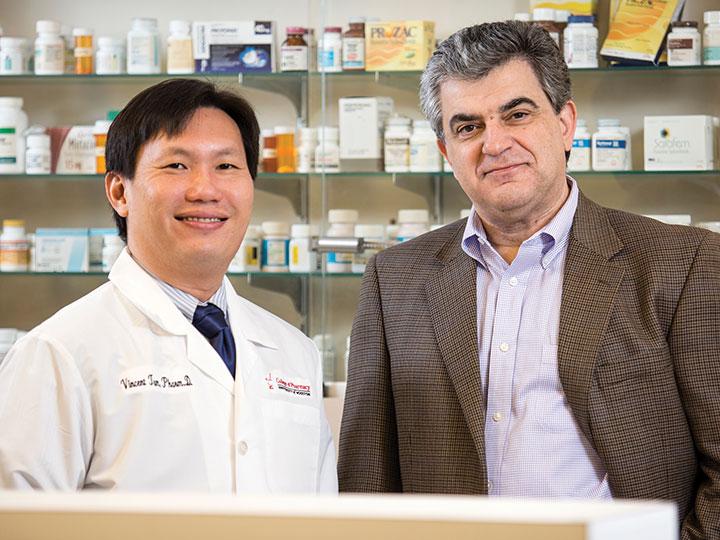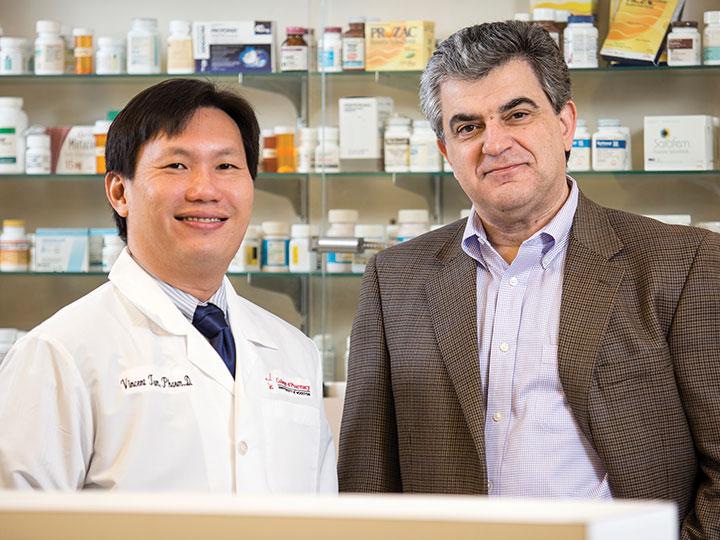
Credit: University of Houston
Two UH researchers have won a five-year, $3.5 million grant from the National Institute of Allergy and Infectious Diseases to develop technology that will quickly suggest the most promising combinations of antibiotics to kill certain resistant bacteria. According to the Centers for Disease Control, "Antibiotic resistance is one of the most urgent threats to the public's health."
"People are dying, there's no question about that. And it's because bacteria – time and again – have come up with ways to fight back against the antibiotics we are throwing at them and survive," said College of Pharmacy professor Vincent Tam who, along with Michael Nikolaou, professor of chemical and biomolecular engineering, intends to even the score with bacteria by optimizing clinical use of antibiotic combinations to combat resistance.
"In the war of people versus bacteria, bacteria are winning," said Tam. It's not just because they reproduce every 20 minutes and outnumber all of us (estimates propose five million trillion-trillion bacteria), they also have become more sophisticated and resistant. Thirty years ago, the chances of bacteria being resistant to ampicillin, a common antibiotic, was 5 percent. Today it is more than 50 percent.
Combining antibiotics has emerged as a typical practice to treat infections caused by virulent strains of bacteria resistant to a single antibiotic. But quickly choosing the correct combination is tricky. For instance, the antibiotic prescribed for a wound infection is not the same one prescribed for strep throat or a myriad of other infections.
"A robust method to guide rational selection of effective antibiotic combinations is crucial to help prevent returning to the pre-antibiotic era of untreatable infections," said Tam. The team is working with an external company, BacterioScan, to develop a rapid diagnostic device that will test bacterial responses to several drug combinations. Clinicians will place bacteria samples in the device, a box, which will monitor bacterial growth in the presence of different antibiotics and will automatically process collected data to spit out predictions of the best combinations in short order.
"I don't have the time and luxury to take days, if not weeks, to figure this out when a patient is dying. The device we are developing will only take hours," said Tam, who envisions these monitors in every hospital lab. The box will deliver a raw signal, or string of numbers, that Nikolaou's algorithms will interpret to deliver a predicted ranking system of the best combinations.
Initial testing will include bacteria P. aeruginosa, which cause pneumonia, A. baumannii which cause urinary tract infections and meningitis, and the superbug Klebsiella pneumoniae, which can cause all three illnesses and others. They will test different structural classes of antibiotics to hit the bugs at different sites.
Since bacteria are different from person-to-person, this approach is a personalized solution to a problem that cannot be solved with a one-size-fits all prescription.
"It is tailor made and customized to deliver results for a specific bacterium for a specific patient," said Tam.
###
Media Contact
Laurie Fickman
[email protected]
713-743-8454
@UH_News
http://www.uh.edu/news-events
Original Source
http://www.uh.edu/news-events/stories/2018/august-2018/082918-drug-resistant-bacteria.php





